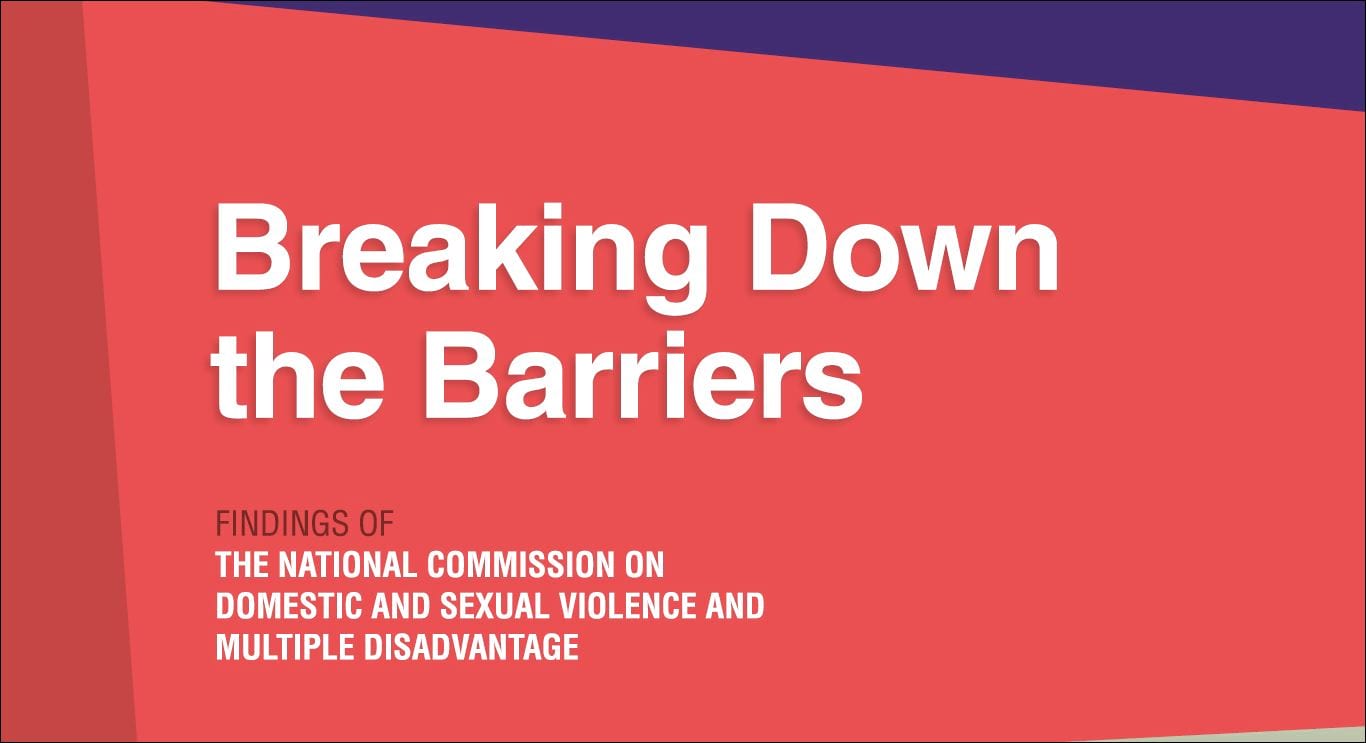Last month, I blogged on an important piece of peer research by women with lived experience of surviving violence published by the charities AVA (Against Violence & Abuse) and Agenda, the alliance for Women and Girls at Risk. The research laid bare the challenges facing survivors of violence and was a key part of the evidence submitted to the National Commission on domestic and sexual violence and multiple disadvantage which published its full report on 27 February.
Today’s post focuses on the findings of that report relating to the criminal justice system.
Key findings
The criminal justice system was a common point of contact for women who have faced abuse, violence and multiple disadvantage, with evidence indicating that the impact of shrinking resources in housing, mental health, substance use and domestic and sexual violence services has led to more survivors becoming embroiled in the criminal justice system as a result of offending – much of which was far less serious than the crimes they had been the victims of.
Women’s experiences of violence, abuse and coercion were rarely recognised as drivers of offending, the Commission heard. Evidence shows that women facing multiple disadvantage are frequently seen as less credible by the police.
For example, when alcohol is involved in a domestic violence incident, the police are more likely to arrest both parties even if no counter allegation has been made against the woman. In these instances, women are seen as criminals, rather than as victims. It is also of note that those from BAMER (Black, Asian, Minority Ethnic and Refugee) communities are significantly more likely to be arrested than those who are not.
Women said that more should be done to redesign the system to respond to women as victims first and offenders second, supporting women to elicit disclosures of abuse and to support those who have experienced domestic and sexual abuse, understanding the connections this has had with their offending behaviour.
There is a growing body of evidence that strengths-based approaches can be particularly effective in supporting women in the criminal justice system.
The Commission heard that survivors of domestic and sexual violence frequently face difficulties when involved in the criminal justice system, particularly due to the lack of knowledge about these experiences in the courts amongst magistrates and judges. This includes expectations about how victims should look, sound and behave, with women facing multiple disadvantage experience additional barriers related to assumptions about their credibility.
Evidence shows that women regularly have their mental health, use of alcohol and sexual history analysed as a way to undermine their legitimacy when in court, and are regularly let down by the justice process.
Hope
There is some hope emerging, as a number of Police and Crime Commissioners have prioritised the development of a multi agency response to domestic abuse. An analysis of Police and Crime Commissioners’ plans found that 95 per cent of them had identified domestic abuse as a priority, 95 per cent had identified mental health and 88 per cent had identified substance use as the key vulnerabilities in their areas.
An example of good practice is the Domestic Abuse Whole Systems Approach lead by Northumbria PCC summarised below:
Much of the success in reducing domestic and sexual abuse in Northumbria has been down to working in partnership with local authorities, groups, individuals and organisations . . . Working with our partners is crucial in providing the necessary support and we have domestic violence workers accompanying police officers on patrols to ensure that this engagement with victims happens at the earliest opportunity .. . Recently, the force has taken the lead on a government funded, multi-force transformation project which aims to provide a better service to victims and brings agencies together.









